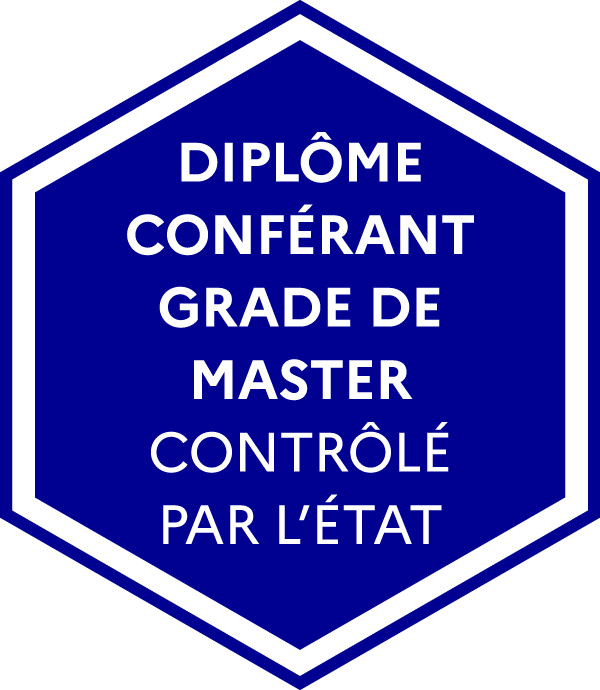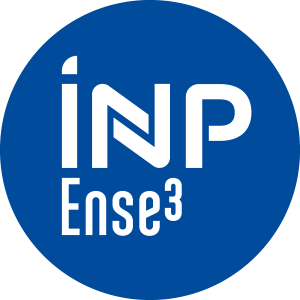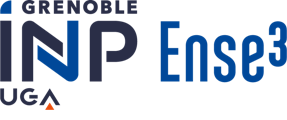
Informations générales
Number of hours
- Lectures 2.0
- Projects 2.0
- Tutorials 10.0
- Internship -
- Laboratory works -
- Written tests -
ECTSECTS
1.5
Goal(s)
The aim of this project is to explore, in teams and on the basis of very concrete case studies, successful or unsuccessful transition mechanisms (energy, ecological, etc.) for territories (islands, regions, towns, etc.) or industrial sectors that emit large quantities of greenhouse gases (steel industry, cement works, etc.).
In addition to the engineering aspect, students are given an understanding of the entire working environment of an engineer working on a transition project, and in particular the role and actions of economic partners, decision-makers, the general public, associations, regulations, etc.
Responsible(s)
Sacha HODENCQ
Content(s)
Based on the choice of a transition project presented at the start of the project, the students have an initial group session to explain the project objectives, the tools and methods used, the schedule of sessions and the objectives of each, and the formative and summative assessments planned.
Individual work is then carried out on the case study and a reading sheet is written.
The sessions are organised as follows
- pooling the information gathered during the documentation phase, and synthesising the information by filling in a so-called "Roth model" to provide a holistic definition of all the information, players, decisions, scales, causal links, correlations, distrust, etc.
- definition of a transition grid, i.e. a tool for tracing the various key stages in the transition of the case study.
- analysis of the case study using UN sustainable development indicators
- critical and collective analysis of the case study, but also of the method followed during the project and the tools used.
The final assessment consists of a presentation to a panel of professionals of a summary of the thinking behind the case study, and taking a step back as a future engineer in the management of transition projects.
PrerequisitesClassical engineering project management.
An inquisitive mind.
Test
Attendance noted (penalty for absence)
Written deliverable :
1 individual reading sheet following bibliographical work (penalty if not or badly done)
1 5-pages group report
Oral presentation (2 hours : 10min of presentation + 1 hour of collective discussion for each team), assessment criteria:
- Quality of presentation materials and speech
- Understanding of the project context
- Analysis of the keys to the project's success/failure
- Relevance of answers to questions
- Quality of argumentation, critical distance
Moyenne entre note rapport et note oral aux malus près (assiduité et fiche lecture)
Calendar
The course exists in the following branches:
- Curriculum - Master's Degree in Engineering ASI - Semester 9
- Curriculum - Master's Degree in Engineering IEN - Semester 9
- Curriculum - Master's Degree in Engineering HOE - Semester 9
- Curriculum - Master's Degree in Engineering IEE - Semester 9
- Curriculum - Master's Degree in Engineering ME - Semester 9
- Curriculum - Master's Degree in Engineering SEM - Semester 9
Additional Information
Course ID : 5EM9REC9
Course language(s): 
You can find this course among all other courses.
Bibliography
A. Roth, « Développement de méthodologies génériques pour la conception optimale et durable des parcs hybrides d’énergies renouvelables », Thèse de doctorat, 2019
M. Etienne, « Companion modelling, a participatory approach to support sustainable development », Springer, 2014
A. Godina, « El Hierro : une île et le choix d’une transition énergétique et écologique ». Vertigo. La revue électronique en sciences de l’environnement. 2014
Funtowicz, Silvio O., et Jerome R. Ravetz. 1993. « Science for the post-normal age ». Futures 25 (7): 739?55. https://doi.org/10.1016/0016-3287(93)90022-L.
Funtowicz, Silvio O., et Jerome R. Ravetz. 1994. « Uncertainty, Complexity and Post-Normal Science ». Environmental Toxicology and Chemistry 13 (12): 1881?85. https://doi.org/10.1002/etc.5620131203.
Callon, Michel, Pierre Lascoumes, et Yannick Barthe. 2001. Agir dans un monde incertain. Essai sur... Seuil. https://www.seuil.com/ouvrage/agir-dans-un-monde-incertain-essai-sur-la-democratie-technique-yannick-barthe/9782020404327.
Hassenforder, Emeline, Nils Ferrand, et Sabine Girard. 2021. « L’ingénierie de la participation?: préparer et penser une démarche participative ». Sciences Eaux & Territoires 35 (1): 28?35. https://doi.org/10.3917/set.035.0028.
Lange, Steffen, Florian Kern, Jan Peuckert, et Tilman Santarius. 2021. « The Jevons paradox unravelled: A multi-level typology of rebound effects and mechanisms ». Energy Research & Social Science 74 (avril):101982. https://doi.org/10.1016/j.erss.2021.101982.
French State controlled diploma conferring a Master's degree



